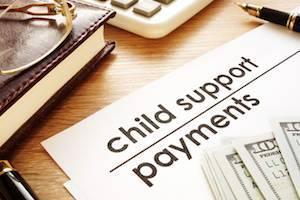Recent Blog Posts
What You Need to Know About Contesting a Prenuptial Agreement
 Hollywood is accustomed to ugly divorces. In 2018, Jersey Shore actor Jenni “JWoww” Farley filed for divorce from her husband, Roger Matthews, and now Matthews is contesting the validity of the couple's prenuptial agreement. While the concerns of reality TV stars do not apply to most of us, any couple can have a prenuptial agreement. If you are going through a divorce, and you have a prenup, you will want to be sure to understand how Illinois law will apply to your case, including whether your prenuptial agreement can be contested.
Hollywood is accustomed to ugly divorces. In 2018, Jersey Shore actor Jenni “JWoww” Farley filed for divorce from her husband, Roger Matthews, and now Matthews is contesting the validity of the couple's prenuptial agreement. While the concerns of reality TV stars do not apply to most of us, any couple can have a prenuptial agreement. If you are going through a divorce, and you have a prenup, you will want to be sure to understand how Illinois law will apply to your case, including whether your prenuptial agreement can be contested.
Prenuptial Agreement Laws in Illinois
The Illinois Uniform Premarital Agreement Act governs all prenuptial agreements filed in the state of Illinois. This law states that to be enforceable, both parties must agree to the prenup and sign it. The agreement will go into effect on the couple's wedding day.
The Illinois statute includes some provisions on what is unlawful to include in a prenuptial agreement. These include any terms that violate public policy or criminal statutes. Spouses are also not allowed to waive the right to receive child support or agree that a parent will not be required to pay his or her child support obligations.
Can a Divorced Parent Leave a Child with Another Person?
 The terms of a divorce settlement or judgment will attempt to cover the many different issues the two parties will face as a divorced couple. However, marital settlement agreements cannot possibly cover every situation. One of the most common situations divorced couples with children face is whether or not parents should leave their child alone with another person, such as a babysitter, when they cannot care for them.
The terms of a divorce settlement or judgment will attempt to cover the many different issues the two parties will face as a divorced couple. However, marital settlement agreements cannot possibly cover every situation. One of the most common situations divorced couples with children face is whether or not parents should leave their child alone with another person, such as a babysitter, when they cannot care for them.
It can be upsetting to hear that a child was left with someone other than their parent. This is particularly true when one parent does not personally know the person watching the child. While this type of situation can be stressful and sometimes cause arguments, is it against the law?
The Right of First Refusal
Historically, Illinois did not have many laws on the books pertaining to someone other than a parent watching a child. However, as of January 1, 2014, parents can choose to leave their child with someone else, but they may first have to ask the other parent. This is known as “right of first refusal,” and this right is covered under 750 ILCS 5/602.3. This statute simply requires that, in certain cases, the parent caring for the child could be required to give the other parent the first opportunity to watch them.
Understanding Uncontested Divorce in Illinois
 Divorce is rarely easy, but there are ways to manage stress and create an amicable separation. Like any other contract, there are ways to leave marriage on secure and reciprocal terms, which is why many married couples choose to pursue an uncontested divorce in Illinois. By doing so, they are reducing the amount of stress felt by both the couple and any children they share. An uncontested divorce can also save both parties time and money.
Divorce is rarely easy, but there are ways to manage stress and create an amicable separation. Like any other contract, there are ways to leave marriage on secure and reciprocal terms, which is why many married couples choose to pursue an uncontested divorce in Illinois. By doing so, they are reducing the amount of stress felt by both the couple and any children they share. An uncontested divorce can also save both parties time and money.
What Is an Uncontested Divorce?
In an uncontested divorce, both parties agree to the terms of dissolving the marriage. These terms can include everything from the division of property to child custody and child support arrangements. For a divorce to be considered uncontested, both spouses must agree on all terms. If there is even one point of contention, the divorce will be considered contested. At that point, the couple will then need to determine if they wish to use mediation, get a collaborative divorce, or go through litigation in court.
Mediation or Collaborative Divorce: Which Is Best?
 When a couple chooses to get a divorce, it can be one of the most difficult decisions to make. However, once this decision is made, spouses quickly learn that they must also decide how to proceed with their divorce. In many cases, they will want to work together to settle their differences rather than pursuing costly litigation in court. Two methods of alternative dispute resolution are mediation and collaborative law. So, which is best for a couple to choose?
When a couple chooses to get a divorce, it can be one of the most difficult decisions to make. However, once this decision is made, spouses quickly learn that they must also decide how to proceed with their divorce. In many cases, they will want to work together to settle their differences rather than pursuing costly litigation in court. Two methods of alternative dispute resolution are mediation and collaborative law. So, which is best for a couple to choose?
Mediation
During divorce mediation, a couple will work with a qualified mediator. The full mediation process is outlined in the Uniform Mediation Act, found in the Illinois Compiled Statutes. Over the course of several meetings, the mediator will help the couple come to an agreement about the outstanding issues in their divorce. The agreement will include many different terms, including a parenting plan, child support and alimony obligations, and decisions about the division of property and debts.
How Will the Proposed Illinois Fair Tax Law Affect Married Couples?
 When Illinois Governor J.B. Pritzker announced a proposal for his new tax plan in Illinois, he sparked debate throughout the state. Some praised what Pritzker called the fair tax law, saying it would only tax the rich and provide more money for low to middle wage earners. However, others have pointed to a major flaw in the proposal, and those opposed to it say it is going to hurt one more group: married couples.
When Illinois Governor J.B. Pritzker announced a proposal for his new tax plan in Illinois, he sparked debate throughout the state. Some praised what Pritzker called the fair tax law, saying it would only tax the rich and provide more money for low to middle wage earners. However, others have pointed to a major flaw in the proposal, and those opposed to it say it is going to hurt one more group: married couples.
The Marriage Penalty Under Fair Tax Law
Traditionally, when a couple jointly files their state or federal taxes, they file in separate tax brackets from those that file individually, allowing them to take advantage of tax savings. However, whenever two earners of the same household owe more taxes by filing jointly instead of separately, it is considered a marriage penalty. The new tax law proposed by Governor Pritzker does not provide different brackets that allow couples to reap more savings. Instead, couples are likely to owe higher taxes.
What Should I Do if My Ex-Spouse Will Not Pay the Divorce Settlement?
 The property settlement is often one of the most hotly contested aspects of a divorce case due to the financial stakes at play. Giving up a substantial portion of one's wealth is not easy for some divorcing spouses to accept. Most spouses find a way to make peace with this part of ending their marriage, but others go to great lengths to avoid complying with the court's orders or executing the negotiated agreement. Unfortunately, this choice can leave the other spouse in precarious financial straits, so it is important to understand the legal options for enforcing a divorce settlement.
The property settlement is often one of the most hotly contested aspects of a divorce case due to the financial stakes at play. Giving up a substantial portion of one's wealth is not easy for some divorcing spouses to accept. Most spouses find a way to make peace with this part of ending their marriage, but others go to great lengths to avoid complying with the court's orders or executing the negotiated agreement. Unfortunately, this choice can leave the other spouse in precarious financial straits, so it is important to understand the legal options for enforcing a divorce settlement.
An extreme example of tactics to avoid paying a property settlement is playing out in the divorce case of a former Board of Trade head who spent the holidays in jail for his refusal to pay his ex-wife the $18 million settlement she is owed. While most spouses do not have the means to transfer assets out of the U.S. and live abroad to avoid paying a divorce settlement, the mechanisms to force compliance are the same in all cases, and a spouse who violates the terms of a divorce settlement can face serious repercussions.
How Is Ownership of Pets Handled in an Illinois Divorce?
 Every spouse has possessions they value more than others, and if divorce happens, these seemingly small differences will often take on a new significance when negotiating or litigating a property settlement. With most possessions, a level of detachment remains, even if a spouse does have an affinity for it in divorce. The same cannot be said for pets in most households, and many owners view pets as members of the family. Fortunately, Illinois is one of just a few states that has a law addressing the issue of pets in a divorce.
Every spouse has possessions they value more than others, and if divorce happens, these seemingly small differences will often take on a new significance when negotiating or litigating a property settlement. With most possessions, a level of detachment remains, even if a spouse does have an affinity for it in divorce. The same cannot be said for pets in most households, and many owners view pets as members of the family. Fortunately, Illinois is one of just a few states that has a law addressing the issue of pets in a divorce.
One woman wanted to prevent another occurrence of a sad situation she experienced at the end of her first marriage when her husband used her attachment to the family dog to get her to make concessions during divorce. When she decided to marry for a second time, she included the issue of pets in a prenuptial agreement so there would no question or fight about it if the marriage ended. Resolving this issue is a large concern for many divorcing couples, so it is important to understand how the law applies to these situations.
Who Qualifies as a Legal Parent in an Illinois Paternity Case?
 Taking care of a child is a monumental task that involves both physical caretaking and making decisions that impact a child's daily and long-term life. While the specific duties shift over time as the child ages, the responsibilities of a parent never completely go away. Most parents perform these as simply a part of fulfilling this role, and a parent may never stop to consider whether he or she qualifies as a legal parent, or what this designation even means.
Taking care of a child is a monumental task that involves both physical caretaking and making decisions that impact a child's daily and long-term life. While the specific duties shift over time as the child ages, the responsibilities of a parent never completely go away. Most parents perform these as simply a part of fulfilling this role, and a parent may never stop to consider whether he or she qualifies as a legal parent, or what this designation even means.
The designation of legal parent brings a number of rights and obligations that only certain people are eligible to receive, regardless of the love and care a person may give to a child. Specifically, legal parents are the only adults authorized to make decisions on behalf of the child, particularly those related to education and medical treatment. In addition, only a legal parent is permitted to request access to the child and parenting time in the event of divorce or separation. With all of the non-traditional family structures that make up society today, this status is not the given it was in the past.
How to Modify Child Support in Illinois

Child support is a relevant issue in any divorce that involves children under the age of 18. Once a judge issues an order for child support, that order is legally binding. If child support is not paid, the courts may find the non-paying parent in contempt of court. There are times, however, when a parent has a problem paying their child support payments. In these instances, is it possible to modify a child support order? It is possible, but it is not always easy.
Determining Child Support Payments
In Illinois, child support is calculated based on the Illinois child support guidelines which have undergone major changes in the last few years. Child support was once determined by solely looking at the non-custodial parent's income, with no regard for the income of the custodial parent.
This has changed, with Illinois moving to an income shares model. Under these guidelines, a judge will consider the income of both parents, along with the cost of living and how many children the couple has together. Based on these factors, the courts hold each parent responsible for child support based on their income.
How Do Court-Ordered Therapy and Custody Evaluations Affect Divorce?
 The emotional and psychological fallout of separation and divorce can have a major impact on a family. Once the initial shock passes and the legal process is underway, children start to get a sense that the change of divorce is really happening, and they may need extra support to get through the transition. The need for assistance is especially prevalent in high-conflict divorce cases in which both sides seek outcomes diametrically opposed to one another. These situations often involve animosities that are transferred to the children. Studies have long shown that divorce can lead to a wide range of negative and long-term emotional and psychological damage in children if not properly handled.
The emotional and psychological fallout of separation and divorce can have a major impact on a family. Once the initial shock passes and the legal process is underway, children start to get a sense that the change of divorce is really happening, and they may need extra support to get through the transition. The need for assistance is especially prevalent in high-conflict divorce cases in which both sides seek outcomes diametrically opposed to one another. These situations often involve animosities that are transferred to the children. Studies have long shown that divorce can lead to a wide range of negative and long-term emotional and psychological damage in children if not properly handled.
Addressing the needs of a child going through a divorce is complicated, and parents may require the involvement of multiple adults to provide sufficient support. For children who are struggling and starting to exhibit destructive behavior, such as depression, skipping school, or outbursts of anger, more direct intervention may be demanded. The courts have the power to order two processes that speak to this situation: custody evaluations and counseling.
Introducing The Law Office of Nicholas W. Richardson
Nicholas W. Richardson is an experienced divorce lawyer and mediator whose comprehensive legal knowledge, commitment to clients and reputation for results bring lasting solutions to your problems.






